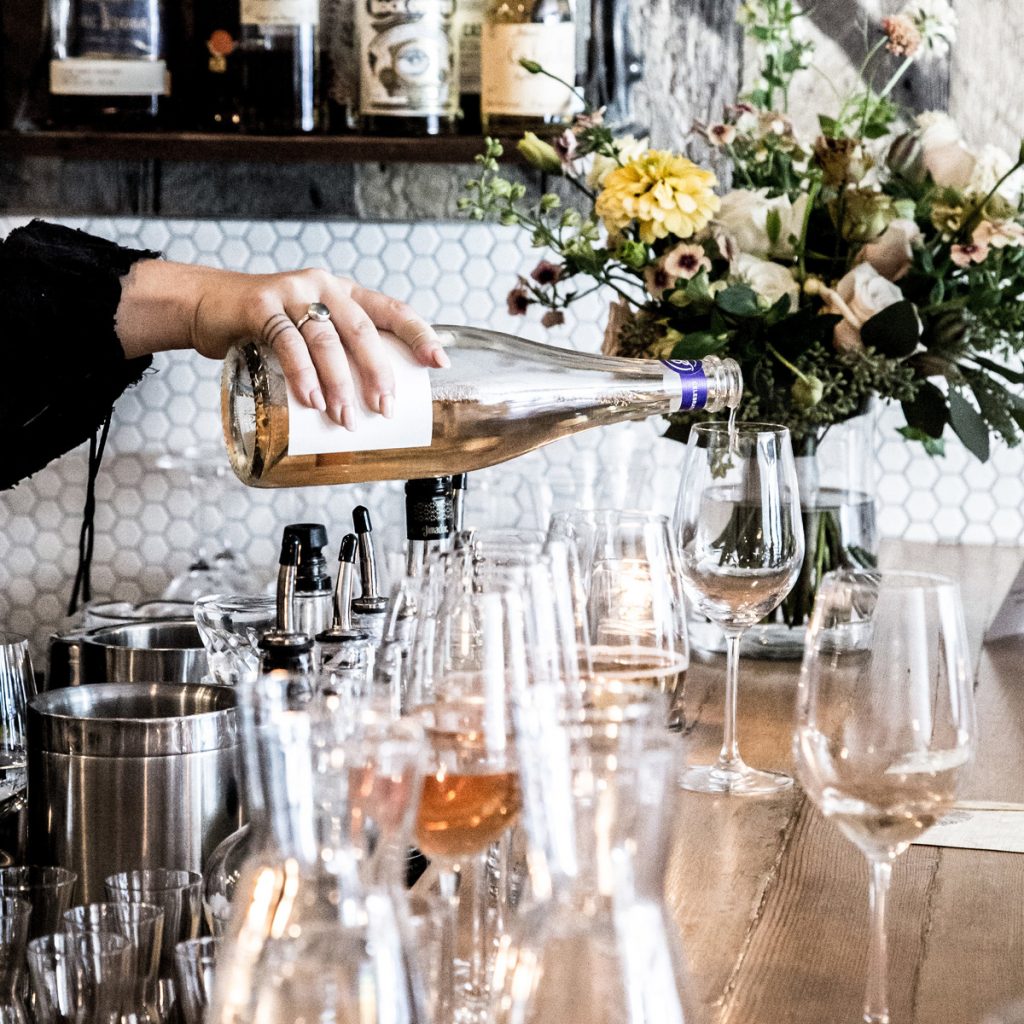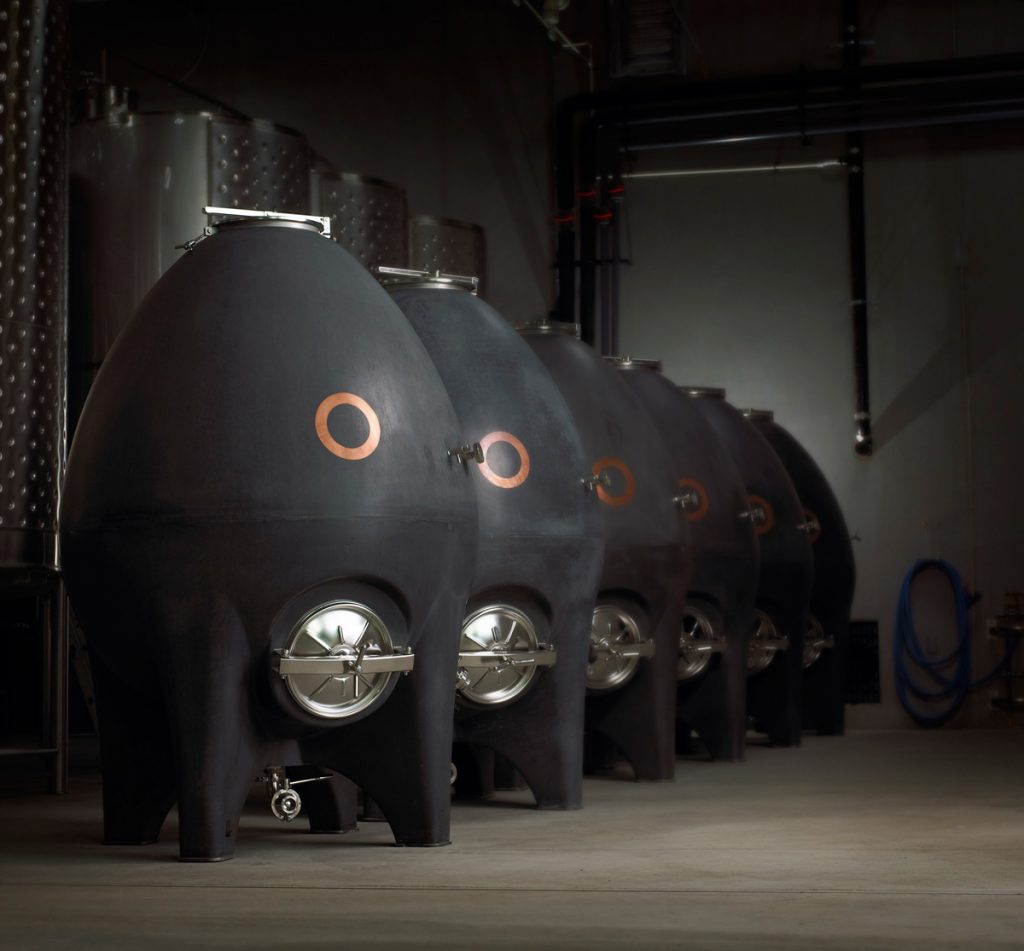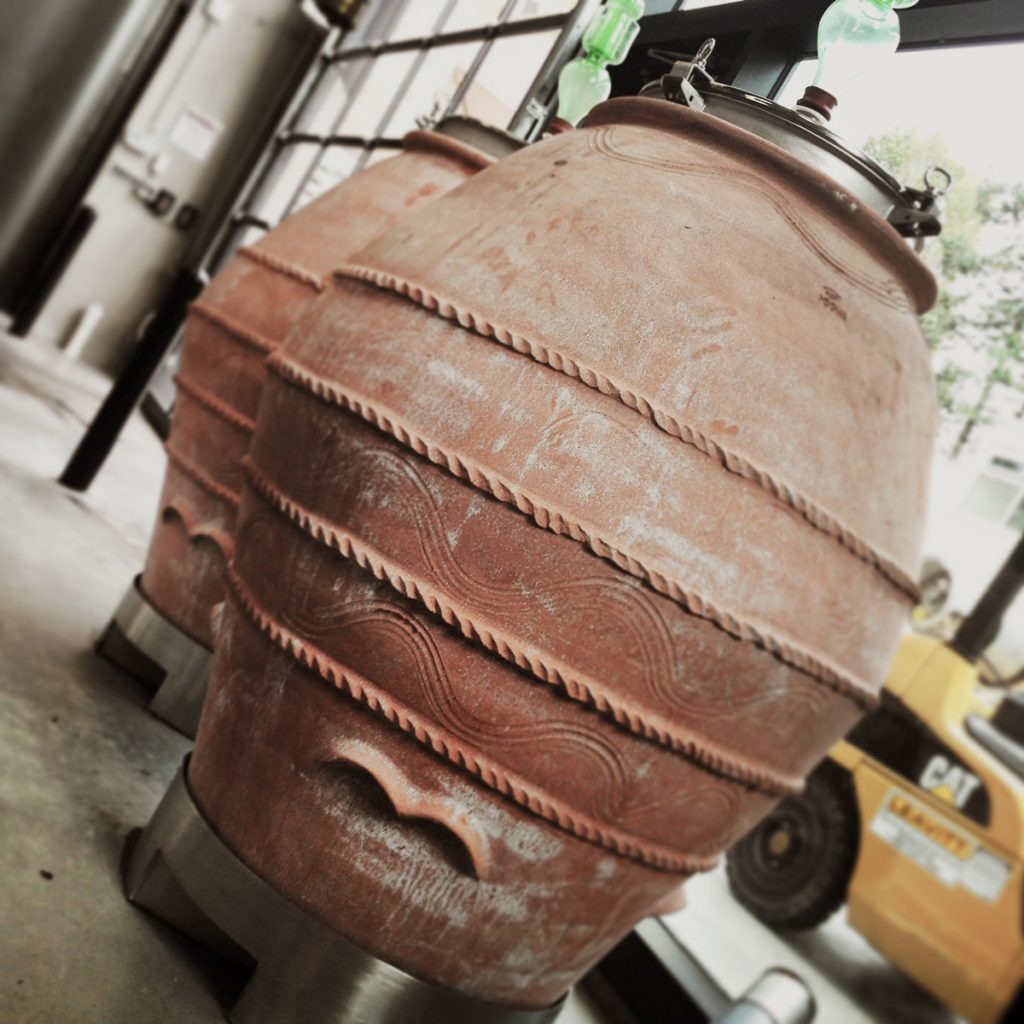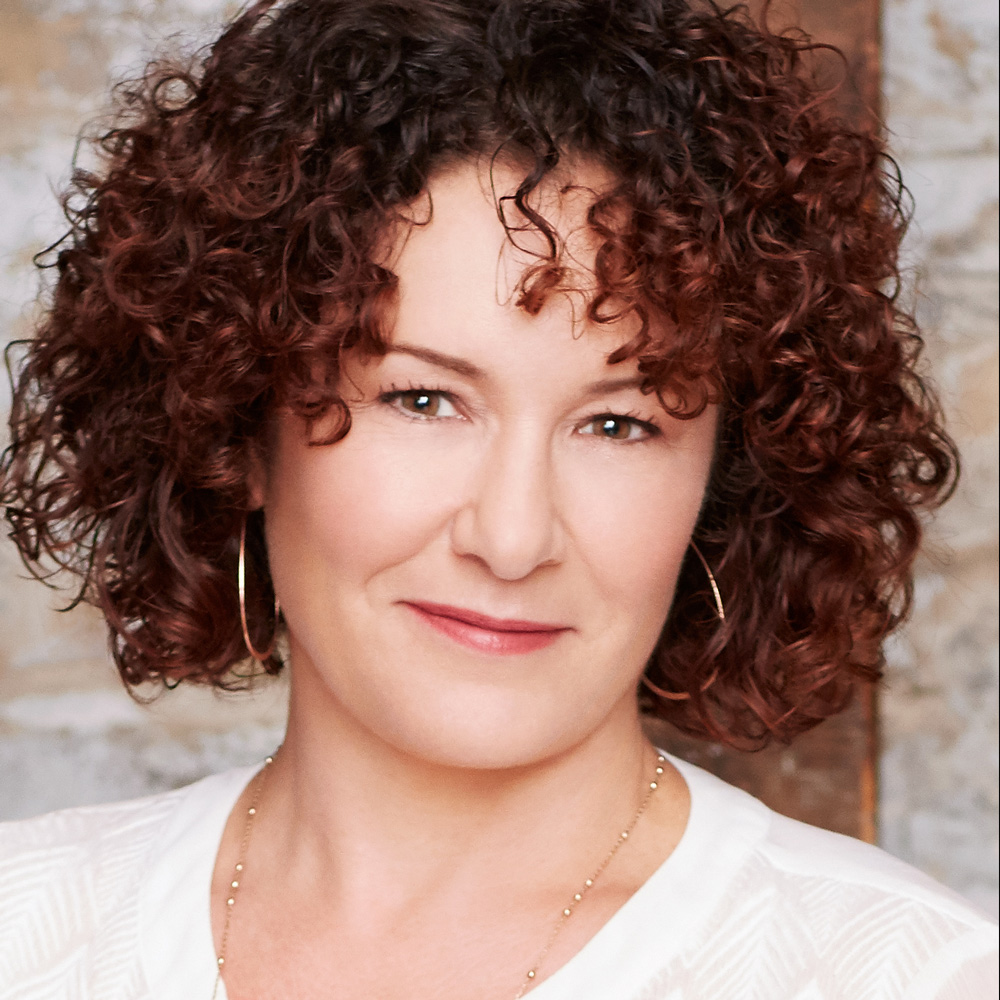
Wine Culture Magazine

The Main Street restaurant Burdock & Co is a pioneer in the natural wine movement, and still one of the best places in Vancouver to enjoy a glass. Leila Kwok photo
“We don’t make natural wine. What we’re trying to do is make natural wine.” This paradox comes from Matt Sherlock, half of Lock & Worth winery (with Nichol Vineyard’s Ross Hackworth), founder of importer Sedimentary Wines and director of the award-winning wine list at Burdock & Co., three pillars of B.C.’s natural-wine scene.
When a pioneer like Sherlock shies away from the term, you know it’s loaded, with no universal definition. “It’s controversial,” he admits.
The natural movement was a reaction against post-Second World War industrialized agriculture, when it became common practice to use pesticides and irrigation in vineyards, commercial fermentation yeasts and flavour-extraction techniques to increase yield, and additives such as powdered tannins or red-wine colorant Mega Purple in winemaking.
In response, Sherlock says, some winemakers reverted to methods that “let the wine speak for the land,” believing that a gentle touch reveals terroir. “It’s drinking a grape that has been fermented. You’re tasting the land. You’re not tasting the hand of man, which is so boring,” he says. He compares highly manipulated wine to an e e cummings poem with its punctuation and capitalization “fixed” by an editor.

Egg-shaped concrete fermentation tanks at Okanagan Crush Pad offer the virtues of oak and stainless steel, without the drawbacks of either.
Lionel Trudel photo
Along with Sherlock and Hackworth, more than a dozen B.C. winemakers are exploring signature practices of the natural-wine movement, from using clay amphorae or concrete vessels for wild-yeast fermentation to forgoing filtration, adjusting acid or sugar levels and minimizing sulphites used for preservation. Often made in small quantities and subject to growing conditions, these wines can be challenging to find—and sometimes challenging to love.
One of the beauties of natural wine is the occasional wildness.
Globally, there’s a huge quality spectrum for natural wine, which causes some wine makers and lovers to disdain it. There can be a fine line between natural and flawed, with the barnyard smell of yeasts or microbes, the cidery whiff of volatile acidity or the nutty smell of oxidation sometimes passing as “natural.” “One of the beauties of natural wine is the occasional wildness,” says New York-based author Alice Feiring, a longtime natural-wine advocate and writer of the subscription-only The Feiring Line newsletter. “But there is one flaw that I have an intolerance for and that’s ‘mouse taint’ (goût de souris).” Don’t let a server convince you these are acquired tastes.
Natural white-grape wines are sometimes amber or orange and hazy, with tannins that might recall black tea and a nose of dried fruits and flowers that rivals the most aromatic Sauternes or Rieslings for unusual notes. (They shouldn’t smell, as Grapes and Soda’s Kieran Fanning memorably told Vancouver, like “a horse with fresh nail polish.”) Reds can look dull and opaque but taste bright, bursting with berry fruit and sour-cherry acidity. Drinking natural wine can resemble the aha-moment taste of free-range chicken or grass-fed beef: So that’s what fermented grapes really taste like! At its best, “It should be nothing but delicious,” says Sherlock.

Back to the future: At Okanagan Crush Pad, natural wines are also fermented in historic-looking amphorae. Lionel Trudel photo
Few B.C. wines self-identify as “natural.” Wine shops often obscure them in “organic” sections (tricky, because some organic or biodynamic wineries can have chemical additives). This is still an insider-y movement that requires consumers to be well-informed (see sidebar) about what they’re drinking—whatever we call it. As one Piedmont winemaker told Sherlock, “We want to leave the land in a better place than we found it.” In the end, that might be the best definition for “natural.”
Sedimentary Wines uses the term “real wine.” “The wine is made in the vineyard,” say natural-wine advocates. Terms like living, grower or terroir wine can be problematic. (What winery is not trying to make terroir-driven wine? As writer Jon Bonné quipped in Punch: “You’d never hear a serious fromager tell you that ‘The cheese is made in the cow.’ ”)
At the Truth in Terroir seminar on organically grown, low-intervention global wines at the 2018 Vancouver International Wine Festival, renowned Haywire and Narrative winemaker Matt Dumayne was asked what he’d like to see more of in the Okanagan. Although he and Okanagan Crush Pad’s consulting winemaker Alberto Antonini do not support the use of any herbicides or pesticides in their own lively, terroir-driven wines, what he didn’t say was, “More natural wine.” He said: “More people (making) site-specific wines.”
While some retailers and restaurants still shy away from a product that can be volatile in the bottle and change from vintage to vintage, “to ignore this category means to lose customers,” says Feiring, based on her international experience with these wines. “It will hold back the store and restaurant, but not the movement—which I believe will change the way we view fine wine.”
Curious about natural wines? Start right here.
Five B.C. natural wines to try
• 40 Knots 2016 L’Orange
(Comox, $36.90): Spicy, zesty, dry, crisp.
• Bella 2015 Méthode Ancestrale Rosé
(Kelowna, $40): All-natural bubbles, yeasty,
wild, berry.
• Haywire 2015 Free Form Red
(Summerland, $39.90): Deep, dark, rich black fruits.
• Little Farm 2016 Pied de Cuve Riesling
(Cawston, $26): Bone dry, lime, bracing minerality.
• Narrative 2015 Ancient Method
(Oliver, $39.90): Earthy, floral, raw, complex.
Where to sample them
Vancouver
Restaurants: AnnaLena, The Arbor, The Birds & The Beets (Juice Bar weekly pop-up), Bows X Arrows, Burdock & Co., Grapes & Soda, Hawksworth, L’Abbatoir, Nightingale, Royal Dinette, Upstairs at Campagnolo. Retail: Kitsilano Wine Cellar, Legacy Liquor Store, Liberty Wine Merchants, Village Liquor Store (West Vancouver)
Victoria/Island
Restaurants: Agrius, Be Love, Olo, Wild Mountain Food & Drink (Sooke). Retail: Vessel Liquor Store
Kelowna
Restaurants: Waterfront Wines
For more information, check RawWine.com and watch for the Raisin natural-wine app to become available in Canada.

Charlene Rooke writes about and drinks wine in Vancouver while working toward WSET Level 3 certification. Her family has Okanagan roots as former Kelowna orchardists, and she loves dry, aromatic white wines.

Charlene Rooke writes about and drinks wine in Vancouver while working toward WSET Level 3 certification. Her family has Okanagan roots as former Kelowna orchardists, and she loves dry, aromatic white wines.
Copyright © 2025 - All Rights Reserved Vitis Magazine